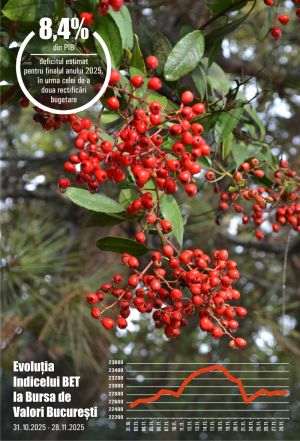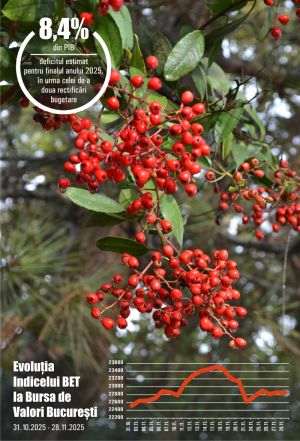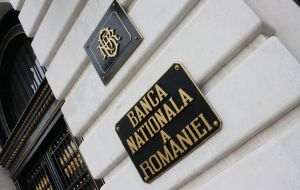Tudor Caranfil says that Communism left Romanian with the equipment of an impressive movie industry and just a few movies: "The forest of the hanged men", "The cruise", "The Dacians" (a blockbuster which was competitive on a European level), "Postcards with wild flowers" or "The Moromete Family".
"Other than that, our movie industry remained parochial and imitative. For a while we had imitated the Soviets, and then we moved on to imitating Western trends.
Caranfil says that censorship was constant in Romanian cinema, regardless of the political regime:
"Whereas before we had self-censorship, now everything depends on those who finance the movies".
According to the movie critic, Romanian filmmakers of the past generation made the mistake of abandoning their audience at the mercy of Hollywood: "With the exception of Lucian Pintilie, they have all begun making so-called < author movies >, for the sake of festivals and awards, movies which proved unconvincing to critics and to the Romanian public alike, and as a result, they were driven out of the market, which made it poorer.
The Romanian movie industry got stuck in a vicious circle: the domestic market is too narrow for Romanian movies to be able to secure funding, which means Romanian film makers only focus on the foreign market, which causes the domestic market to contract further".
The critic claims that we only found our identity very late, in what was called "The Romanian New Wave":
"Cristian Mungiu, Cristi Puiu and Corneliu Porumboiu are each very different directors, but they have some shared traits - they appeared at the same time, they had a bunch of talented actors to choose from, and this was their great opportunity.
When asked what he meant by "talent", Caranfil agreed to go into detail:
"Talent, that means a personal and inspired vision of the world".
The critic alleges however, claims that this first wave of success of the Romanian movie industry was only temporary: "It lasted five to six years, but it may very well be about to end; nothing lasts forever".
And he goes on to explain why he feels that way:
"When you"re making movies for festivals and you have the joy of winning a prestigious award - let"s say, at Cannes for instance -, you become extremely cautious with the next movie, for fear of compromising your first hit. If the second movie is good, then you get recognition; but if it is bad, then the jealous voices will tear you to shreds. With the exception of Cristi Puiu, all of the directors who were part of the < Romanian new wave > who won awards at major film festivals keep putting off making new movies. I suppose they are scared of making new movies. I would be too!"
When asked whether he felt that movie festivals negatively affect directors, by making them wary, the critic replied flatly: "Definitely!" Upon our retort that the interview with him was made at a festival which he himself had declared as useful, he said:
"Festivals offer the Romanian movie industry the opportunity to go out into the world, to be promoted in theaters, in compensation for the fact that they are very rarely present on the Romanian screens."
Tudor Caranfil seems skeptical when it comes to the Romanian movie industry:
"I don"t think that we will get anything remarkable from the < New wave >. But their legacy will be the fact that they raised the standard for the average movie, such as "If I Want to Whistle, I Whistle" or "Morgen", which have successfully represented the new movie industry here at the Mediaş festival as well".
But since he probably felt that one should leave room for hope, Caranfil also said that there is a chance that a new group of young talented creators appearing.
That is, young people with personal and inspired visions of the world.
Nothing out of the ordinary.
• NOTA BENE
The full name of the notorious critic is "Martin Tudor Caranfil", which seems to suggest that he was fated for his chosen profession.
Etymologically, "Martin" derives from "Mars" - the Latin name of the god of war.
"Tudor" derives from the Greek word "Theodoros", which means "blessed by the gods" ("with talent").
The name "Caranfil" seems to derive from the Greek "Kara" (which means "head"), which became "chiere" in the old French language (means "expression", as in facial expressions) and from the Greek word "filos" (which means "lover"); the combination of the two parts into a single name could mean "one who loves expression".
In short, we get a "lover of expression, gifted, warlike".
Caranfil, Tudor, Martin.
It bears mentioning that during the Festival, he fed the puppies which were lying below the window of his hotel room, but he didn"t pull any punches when discussing some of the movies.























































